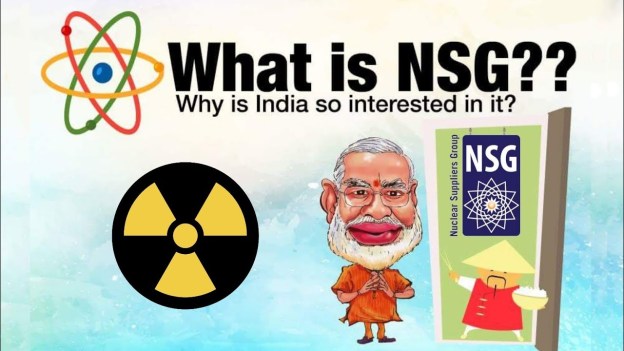The United States, Britain and others have argued that nuclear-armed India should join the secretive 48-nation Nuclear Suppliers Group (NSG) – established in 1975 to ensure that civilian atomic trade is not diverted for military purposes. But other NSG states have voiced doubt about accepting a country that built up a nuclear arsenal outside a 189-nation treaty set up four decades ago to prevent states from acquiring such weapons of mass destruction.
Days ahead of the June 26-27 NSG meeting in Buenos Aires, India said it was ratifying an agreement, a so-called Additional Protocol, with the International Atomic Energy Agency to expand oversight over its civilian nuclear programme. The United States said this marked another “important step in bringing India into the international non-proliferation mainstream”. But some critics questioned the step’s significance, as it would not affect India’s nuclear weapons programme and sensitive atomic fuel activities. They said the Indian agreement was a much weaker version of a deal most other IAEA members have, giving the U.N. watchdog wide inspection powers to make sure there are no covert nuclear activities in a country. “India’s version of the Additional Protocol is a paper tiger,” said Daryl Kimball of the U.S.-based Arms Control Association, a research and advocacy group….
The diplomatic tussle centres on whether the emerging power should be allowed into a key forum deciding rules for civilian nuclear trade, even though it never joined the 1970 Non-Proliferation Treaty (NPT), under which it would have to give up its nuclear weapons…
India – Asia’s third-largest economy – would need the support of all NSG states to join the cartel that has a pivotal role in countering nuclear threats and proliferation. If India eventually were to become a member, it would boost its standing as an atomic power. It would be the only member of the suppliers group that has not signed up to the NPT.
Supporters say it is better if the country is inside than outside the NSG as it is already an advanced nuclear energy power and will in future become a significant exporter as well. Those who are sceptical argue it could erode the credibility of the NPT, which is a cornerstone of global nuclear disarmament efforts.
Diplomats have said that China and some others have been doubtful. Beijing’s reservations are believed to be influenced by its ties to its ally Pakistan, India’s rival, which has also tested atomic bombs and is also outside the NPT, analysts say.
Excerpts,Nuclear Suppliers Group to discuss ties with India,Reuters, Jun 24, 2014
